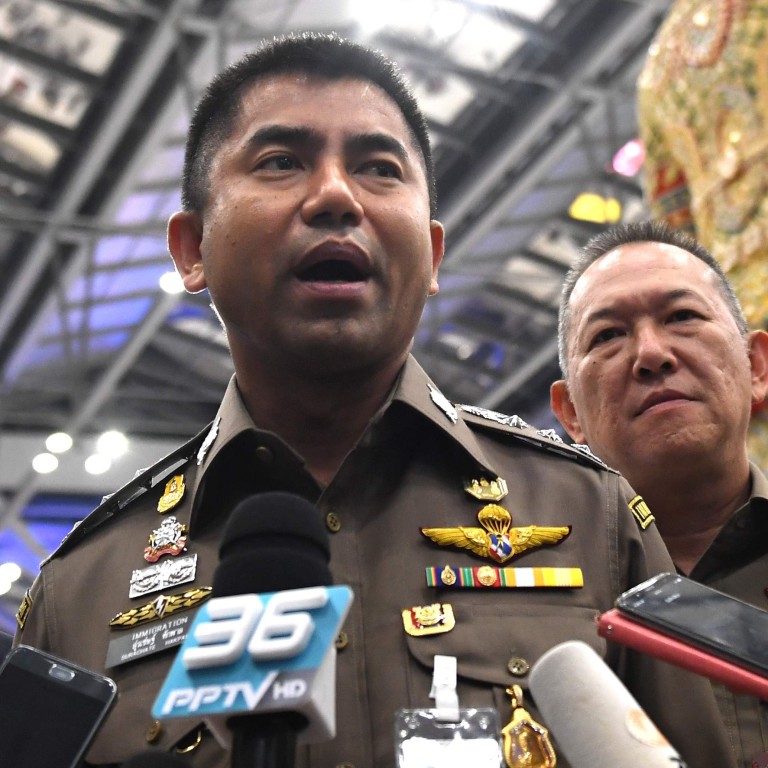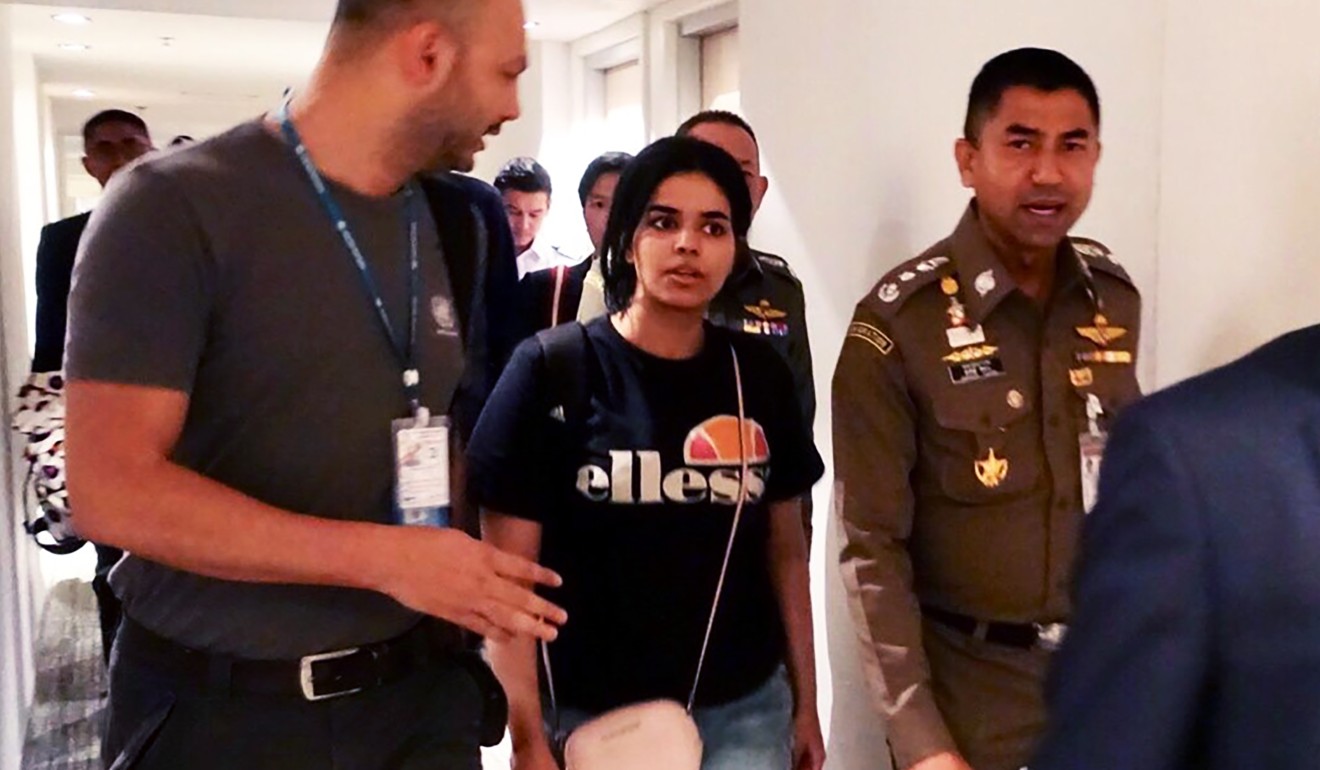
Thailand vows to change refugee policy and ‘follow international norms’ after criticism over Rahaf Mohammed al-Qunun case
- Thailand’s draconian immigration policies have been under the spotlight over the past week, following the case of Rahaf, who fled Saudi Arabia
- Newly appointed head of immigration said refugees would no longer be returned home ‘involuntarily’
Thailand’s immigration chief has pledged a reversal of the country’s notoriously harsh treatment of refugees following the global furore around a young Saudi woman’s attempt to seek asylum.
Speaking on Wednesday, the newly appointed head of immigration, Surachate Hakparn, said refugees would no longer be returned home “involuntarily”.
This would be a major shift in the long-running policy in Thailand of refusing to recognise and shelter asylum seekers and frequently returning them to countries where they are in danger. Thailand is also not a signatory to the UN convention on refugees.
Surachate pledged that going forward, when it comes to asylum seekers, Thailand “will now follow international norms”.

Thailand’s draconian immigration policies have been under the global spotlight over the past week, following the case of 18-year-old Rahaf Mohammed al-Qunun from Saudi Arabia, who fled her abusive family and attempted to seek asylum in Australia. She captured headlines across the world after she was intercepted during a stopover in Bangkok and immediately prepared for deportation back to Saudi Arabia by Thai immigration authorities.
It was only after Qunun barricaded herself in a Bangkok hotel room and began tweeting her plight to the world, drawing international publicity and support, that Thailand made the rare exception to release her into the care of the United Nations High Commissioner for Refugees and be given asylum in Canada, arriving in Toronto on Sunday.
Surachate was adamant however that the Thai authorities had not caved to “pressure” in Qunun’s case.
Teenage traveller Rahaf Mohammed al-Qunun is now ‘under care of UN’
However, inconsistencies in Surachate’s pledges to reform the Thai immigration process were already exposed in his comments on the ongoing case of Hakeem al-Araibi.
Al-Araibi, a Bahraini refugee with permanent residency in Australia, was taken into detention when he arrived in Bangkok for a holiday in November, and faces deportation back to Bahrain where he says he will be at risk of torture.
Al-Araibi, a former footballer for the Bahrain national team who now plays semi-professional football in Melbourne, was picked up by Thai immigration on an Interpol red notice,, despite having refugee status in Australia since 2017. Australia has made repeated calls for him to be released and returned home to Australia.
Surachate said the case was “different” because there was an “outstanding warrant” for him, despite the fact that the Interpol red notice, requested by Bahrain and erroneously issued against Interpol’s own refugee-protection protocols, has since been lifted.
Saudi teen refugee Rahaf Mohammed al-Qunun, now safe in Canada, wants to fight for other women
Thailand is instead processing a formal extradition request from Bahrain, and Surachate would only say that al-Araibi would be able to make his case “in court”.
Surachate’s appointment as department chief has been marked by a harsh crackdown on illegal immigrants over the past three months, which has resulted in women and children refugees, who had previously been released, rounded up again and put back into detention – described as “government shelters” – despite an earlier promise by the government to no longer detain single mothers and children.
However, speaking on Wednesday, Surachate pledged that all women and children in immigration detention would be given bail ‘“tomorrow”.

